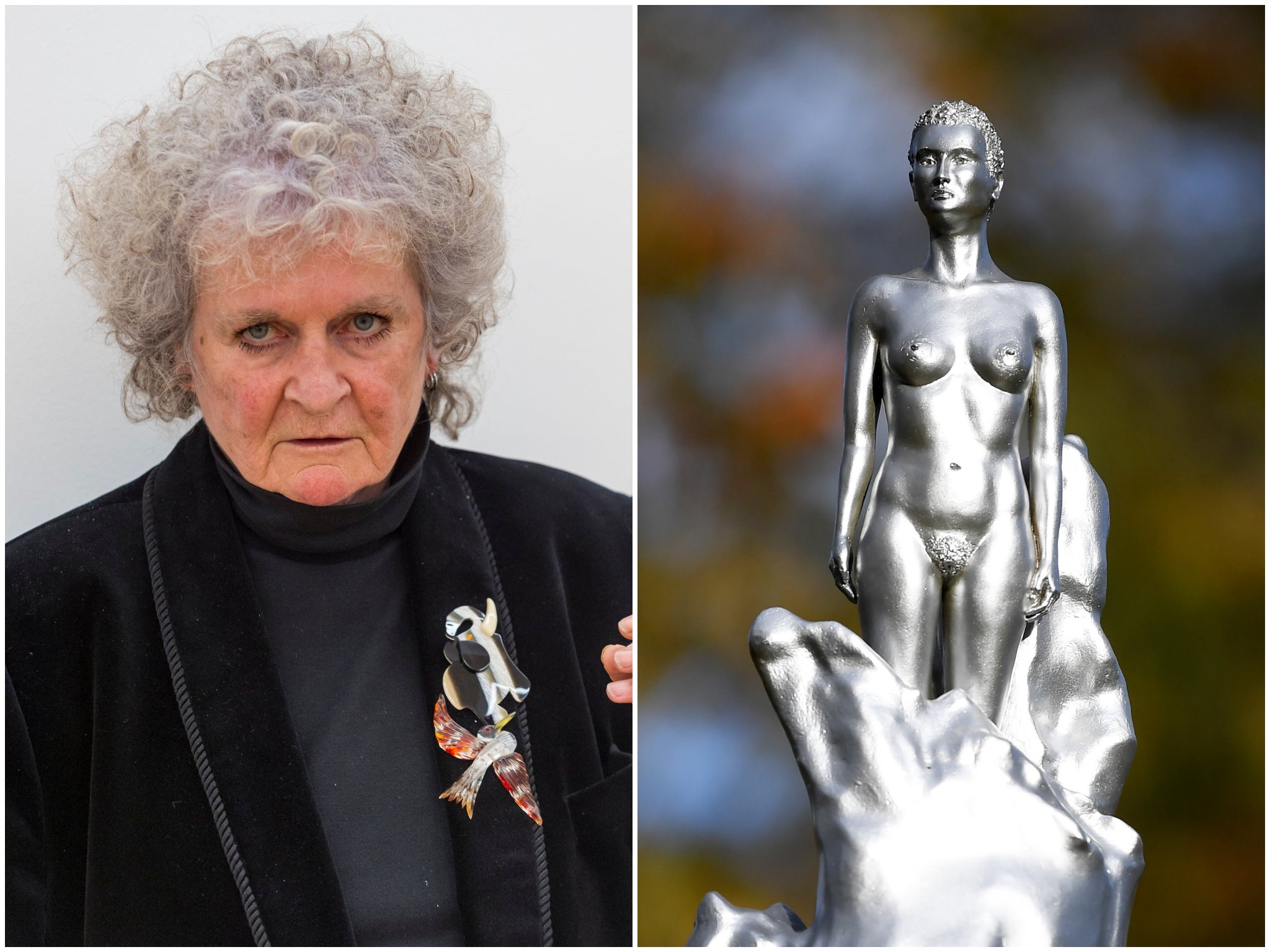Mary Wollstonecraft: Artist behind controversial statue says critics ‘missed the point’
Many questioned why sculpture appeared to feature feminist wearing no clothes

Maggi Hambling, the artist behind the Mary Wollstonecraft statue that has been the subject of widespread criticism online, has defended her work.
The statue for the feminist icon was criticised due to the fact that it features a naked woman.
Wollstonecraft, who has been dubbed the “mother of feminism”, was commemorated with the artwork on Newington Green in London last night (10 November).
“Nameless, nude, and conventionally attractive is the only way women have ever been acceptable in public sculpture. This was a chance to break from those conventions, no?” tweeted one critic.
Novelist Jojo Moyes added: “I think it would have been nice to commemorate Mary Wollstonecraft with her clothes on.
“You don’t see a lot of statues commemorating male political figures without their pants on.”
Hambling has now defended the statue, saying people have “missed the point” of it.
“You can’t be naked enough can you?" she said to the Evening Standard. “The point is that she has to be naked because clothes define people. We all know that clothes are limiting and she is everywoman. As far as I know, she’s more or less the shape we’d all like to be.”
She said the figure in the work is not Wollstonecraft. “She’s everywoman and clothes would have restricted her. Statues in historic costume look like they belong to history because of their clothes. It’s crucial that she is ‘now’.”
Hambling continued: “The whole sculpture is called ‘for Mary Wollstonecraft’ and that’s crucially important. It’s not an idea ‘of’ Mary Wollstonecraft naked… the sculpture is for now.”
Wollstonecraft was an early pioneer of human rights. Her book, A Vindication of the Rights of Woman, published in 1792, called for gender equality a century ahead of the suffragettes, prompting Millicent Fawcett to describe her as “the leader in that battle”.
Hambling was unveiled as the chosen sculptor for the Wollstonecraft sculpture in 2018.
She is best known for her sculpture of Oscar Wilde in Covent Garden.
Subscribe to Independent Premium to bookmark this article
Want to bookmark your favourite articles and stories to read or reference later? Start your Independent Premium subscription today.

Join our commenting forum
Join thought-provoking conversations, follow other Independent readers and see their replies